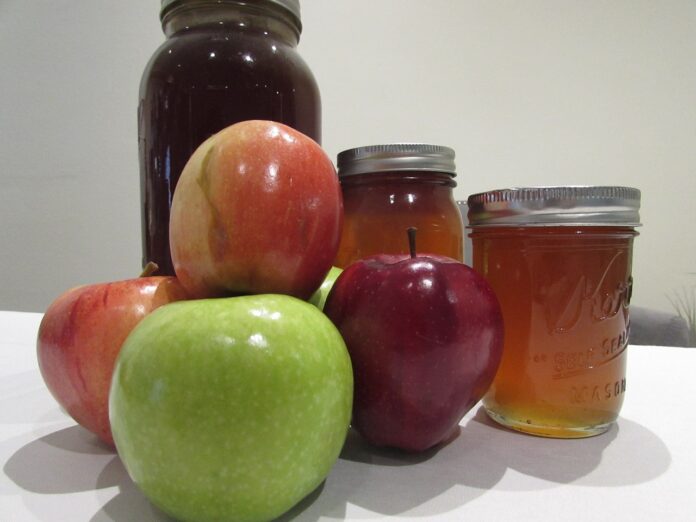Rosh Hashana is the celebration of the Jewish New Year. It is a deeply significant and multifaceted holiday that ushers in a period of spiritual reflection and renewal. Occurring on the first and second days of Tishrei, it is a time for both celebration and introspection, rich in tradition and symbolism.
In 2023, the holiday starts on Friday September 15th at sundown and ends on Saturday September 17th at sundown, marking the 1st and the 2nd day of the new year . In Jewish households, women and girls light candles on each evening of Rosh Hashanah, reciting blessings to usher in the holiday. This act of kindling represents the warmth and hope of a new year.
The observance of the holiday is the production of the sounds of the shofar, a ram’s horn. This powerful act symbolizes a call to awaken and repent, echoing the biblical story of Isaac’s sacrifice. The shofars are blown during synagogue services, with up to 70 blasts sounding during the Musaf service. For those unable to attend, arrangements can be made for a “house call” shofar blowing.
Rosh Hashanah serves as the precursor to the 10 Days of Repentance, also known as the Days of Awe, culminating in Yom Kippur, which are the Days of Atonement. During this period, individuals engage in self-reflection, seeking to improve themselves in the coming year.
The round challah bread, symbolizing the cycle of life, is enjoyed with honey to wish for a sweet year ahead. Apples, too, are dipped in honey, embodying the desire for a year filled with joy and abundance. Pomegranates, with their numerous seeds, signify a fruitful and productive life.
Attending synagogue services is a fundamental part of Rosh Hashanah, with special prayers and Torah readings. The shofar’s sound, dating back to biblical times, reminds listeners of God’s sovereignty and awakens their spirits.
Most importantly, Rosh Hashanah encourages self-reflection, urging individuals to evaluate the past year, identify areas for improvement, and set positive intentions for the year ahead. It is a time to mend relationships, seek forgiveness, and start anew.
Furthermore, the Hebrew calendar’s unique calculation, starting from the creation of the world, adds another layer of significance to Rosh Hashanah. In 2023, the Jewish year will be 5784, emphasizing the profound sense of history and tradition embedded in the holiday.







